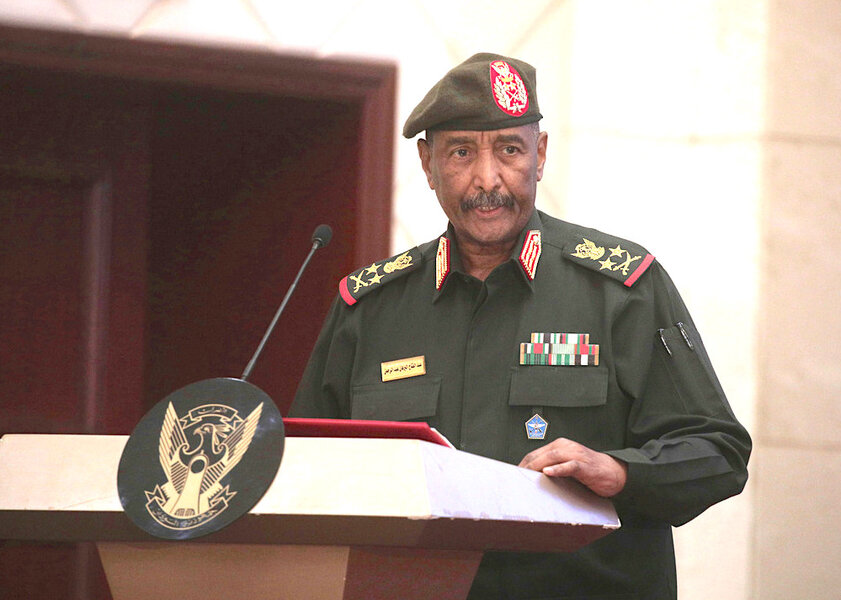Despite Sudan fighting, a society reshapes itself
Loading...
Just a few days ago, civil society and military leaders in Sudan were poised to set the African nation on a carefully negotiated path back to democracy. Instead the country’s two top generals, who joined forces to seize power 18 months ago, have turned on each other.
The fighting that erupted Saturday comes at a time when the Horn of Africa is already dealing with multiple security challenges. Yet rather than marking the end of popular hopes for a return to civilian government in Sudan, the outbreak between the rival military factions shows how deeply rooted those democratic aspirations have become. As a doctor in Khartoum, the capital, told Le Monde today, “this is not our war.”
Across Africa, an uptick in coups in recent years has strengthened pro-democracy movements and efforts to instill democratic values in African armed forces. In the past five years, 26 African countries have joined in an association of parliamentary committees working to strengthen civilian military oversight. African civilian and military leaders, meanwhile, are working through regional security blocs and the African Union to professionalize armed forces under civilian command.
Those efforts, the Africa Center for Strategic Studies notes, reflect an attempt to earn public trust by instilling values such as “integrity, honor, expertise, sacrifice, and respect for citizens” in African militaries. They mirror public attitudes. The latest Afrobarometer survey of attitudes about democracy found that, across 34 countries, 68% of Africans prefer democracy to any other system of government, while large majorities reject military rule (74%) or one-person rule (77%).
Tellingly, in countries where militaries have seized power in recent years, the generals have felt compelled to promise transitions back to democracy. In Sudan, one of the warring generals admitted last year that the coup he backed in 2021 was wrong. The other said, “soldiers belong in the barracks, and parties go to elections.”
Negotiated transitions in countries that have fallen recently under military rule have met repeated delays and obstacles. A constitutional referendum in Mali, for instance, was indefinitely postponed in March. Yet for the democratic forces set in motion by African coups in recent years, such setbacks have strengthened resolve.
“The Malian population has enormous energy and appetite for a change,” Korotoumou Thera, executive director of a Malian civil society group for women, told the United States Institute of Peace last week. Organizations like hers, she said, “act as cement in the consolidation of peace and security.”
The outbreak of fighting in Sudan has raised united calls from the international community for a swift return to peaceful negotiations. But for Sudan’s civil society groups, the power struggle between two warring generals is almost secondary. Their work of building a society shaped by democratic values goes on.





